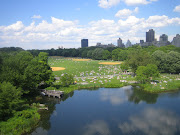Independence Day, Republic Day and India-Pakistan match(es) are the only days when every Indian becomes patriotic.
Last week i was chatting with a friend of mine. She asked me if i spoke Hindi. She could have guessed my answer as she very well know that i am from Madras. So i smiled and said "Hey, remember i am from Madras". Like a typical Indian she asked me as to why i didn't learn Hindi as its our national language. My answer made her really furious. I said we need the country called India only because we need a passport (Well i mean only the passport :-)).
Then, as she was angry like a kali i slowly asked her to define India first. Is India a political boundary? if so is it the one drawn after 1947 or before?
I have come across this same topic many times in the past. I, for some reason could never comprehend the idea of patriotism. Scholars always say "No nation, no home ". I always wondered how the jewish community who never had nation or a home for the past 5000 years preserved their culture pretty much intact. They disprove the very fact that you need international boundary to preserve your culture. So culture cannot be a reason for being a country. We indians, infact boast that we are a land of multiple culture. People who have travelled reasonably well in India would agree that not even the basic religious ritual is done in the same fashion across the country.
Economic interests could be another reason for being a country but who's economy will be a question then. If the business goes down in one place one can always move to another. If you cannot move then you perish (theory of natural selection). Even animals have the instinct to move to a greener pasture. I hope human beings didn't forget some fine lessons learnt as an animal in the course of our evolution. So nation building is for the losers or people who want to exploit the losers and become rich and famous amongst losers. This idea could be extrapolated to anything "Team building", "Company Building", etc. All the above loser talks are management mantra of today's world.
In the Ithihaasam's and puranman's there has been a greater emphasis on personality development. It emphasises people to follow their own path. To follow is a common man's attitude(loser's attitude). If to lead is exploitation, then we have a question of what is the ideal path? The answer is a simple 'En Vazhi Thani Vazhi' mentality. It urges everyone to have a unique path to attain mukti. In layman's term attaining mukti is nothing but to be a human being with acceptance to everything or being dispassionate to everything(0 or infinite). People sometime think what Rajinikath says is a mere punch dialogue. Well its a punch dialogue with more inner meaning.
Ancient wisdom of classifying varnam's is very confusing even to scholars. It has always been debatable in the intelectual community. There has never been a consensus in accepting who's a brahmin. There is some consensus to the idea of who's a kshathriya and a vysya. There is definitely a consensus in accepting who's a sudra as the rule is simple. Anyone who doesn't fall into the other three is sudra. The parameters set for the three varnams are very high and 99% of today's people wouldn't fall into any of the 3 varnams. I am leaving the 1% as an option-unknown. That being the case we are just shades of sudras in today's world.
How appropriate Krishna is in his Gita when he says that more towards the end of this cosmic cycle kali, there would be more dependence on each other even for simple day to day activities making us all sudra(s) in this world. Be it Arjunan or Duroyadhanan or Krishna, urged people to fight like warriors and fight to prove their ego, their valor. No where they urge them to fight for a nation or for a common cause.
If the very foundation of our culture emphasises on attaining brahman why are we still parochial and fight about caste, language and man made national boundaries. I ended my conversation with my friend by saying "To define India i must be able to define who is an Indian first. To define who is an Indian i need to define/understand who am i first? " until then India is only a name in the passport for me. I rest my case.
Searching continues...
Subscribe to:
Post Comments (Atom)

No comments:
Post a Comment